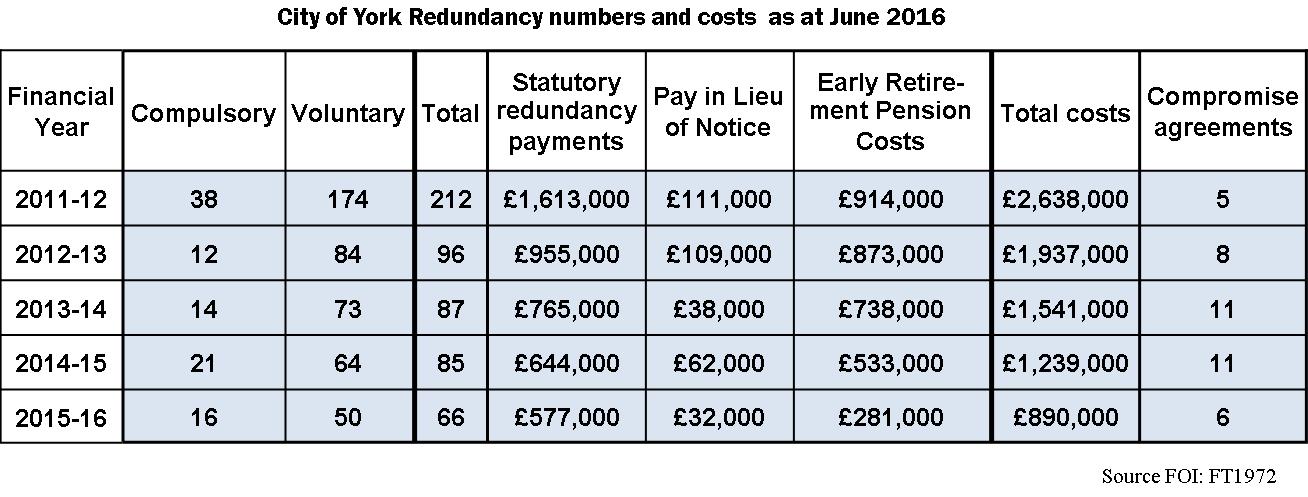546 staff made redundant – 41 sign “compromise agreements”
A Freedom of Information response has revealed the costs of cutting staffing levels at the York Council.

The figures don’t include teaching staff.
In total 546 have left the Council with average pay-outs of around £15,000 each. Over 80% of the redundancies were voluntary.
The figures reveal that the largest number of redundancies occurred in 2011/12 when 212 left the Council. This has fallen gradually each year to a figure of 66 during the last financial year.
A total of £8.2 million has been paid out of which £4,554,000 was the cost of statutory payments, £3,339,000 early retirement costs and £352,000 pay in lieu of notice.
Only three former staff were subsequently re-employed directly by the Council.
The authority says, though, that they don’t record whether any of their agency or contract staff have previously been employed by the Council.
Individual redundancy proposals are reported to a small group of Councillors who meet each week in a “behind closed doors” decision session.
The Council has specifically said in its response that it “has made no enhanced redundancy or pension payments”.
Compromise agreements
The Council has also confirmed that 41 “compromise” agreements have been signed with staff. Usually these involve some sort of compensatory pay.
A compromise agreement is a legally binding agreement made either during or following the termination of employment. It is recognised by statute and is the only way an employee can validly “contract out” of their employment law rights. It usually provides for a severance payment, in return for which former employees agree not to pursue any claim or grievance to an Employment Tribunal.
A leading law firm says that the major reasons for using the compromise agreement (other than to settle an existing claim) are to “remove an employee on the grounds of poor performance or misconduct, to avoid legal challenge in redundancy situations and to make it easier to remove senior staff without embarrassment”.
The Council has so far failed to explain what the reasons were for the compromise agreements that it has been party too.
While such agreements usually involve a confidentiality clause, there is no reason why the main reasons for the high level of use of the system in York cannot be made public.

